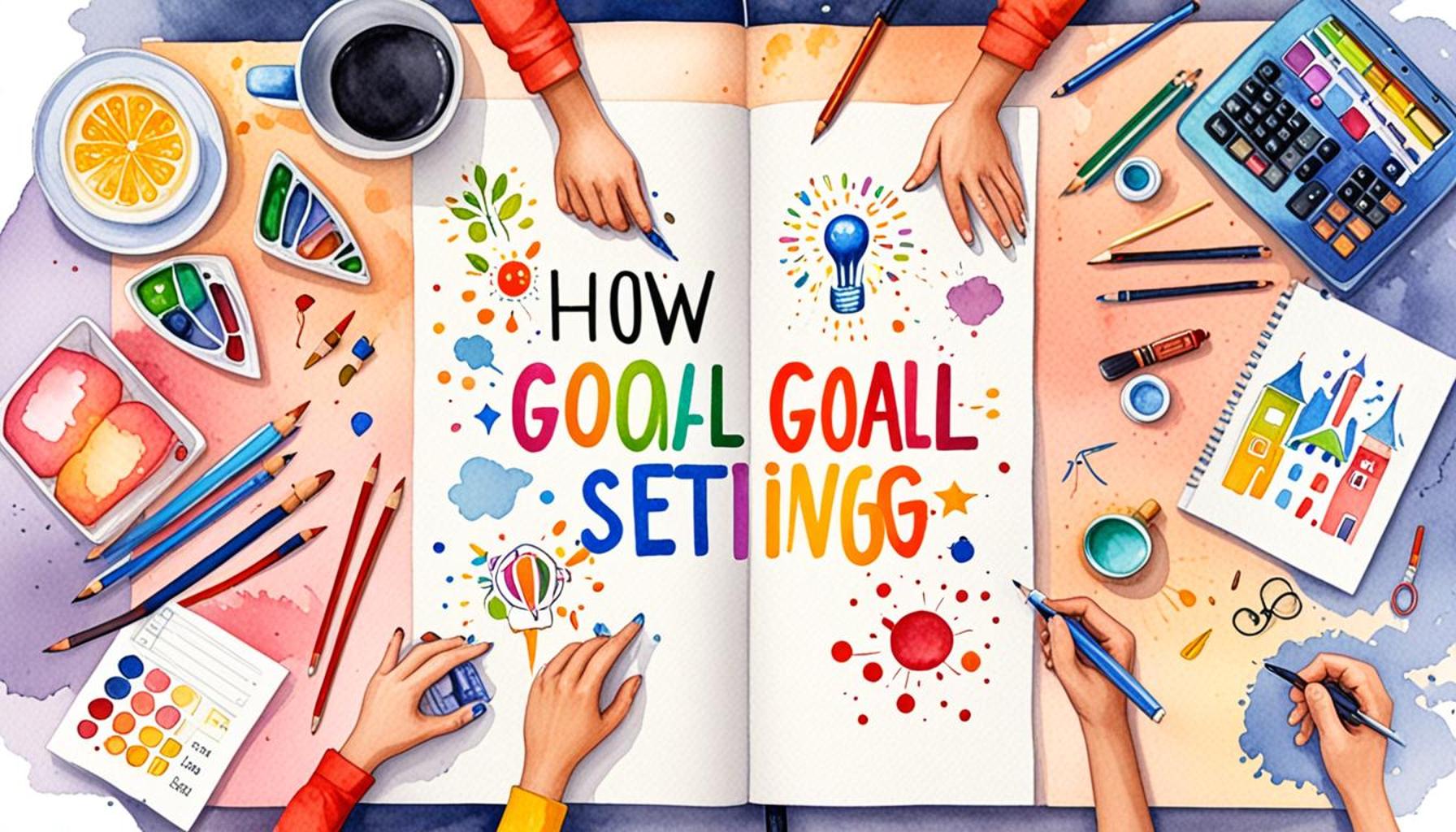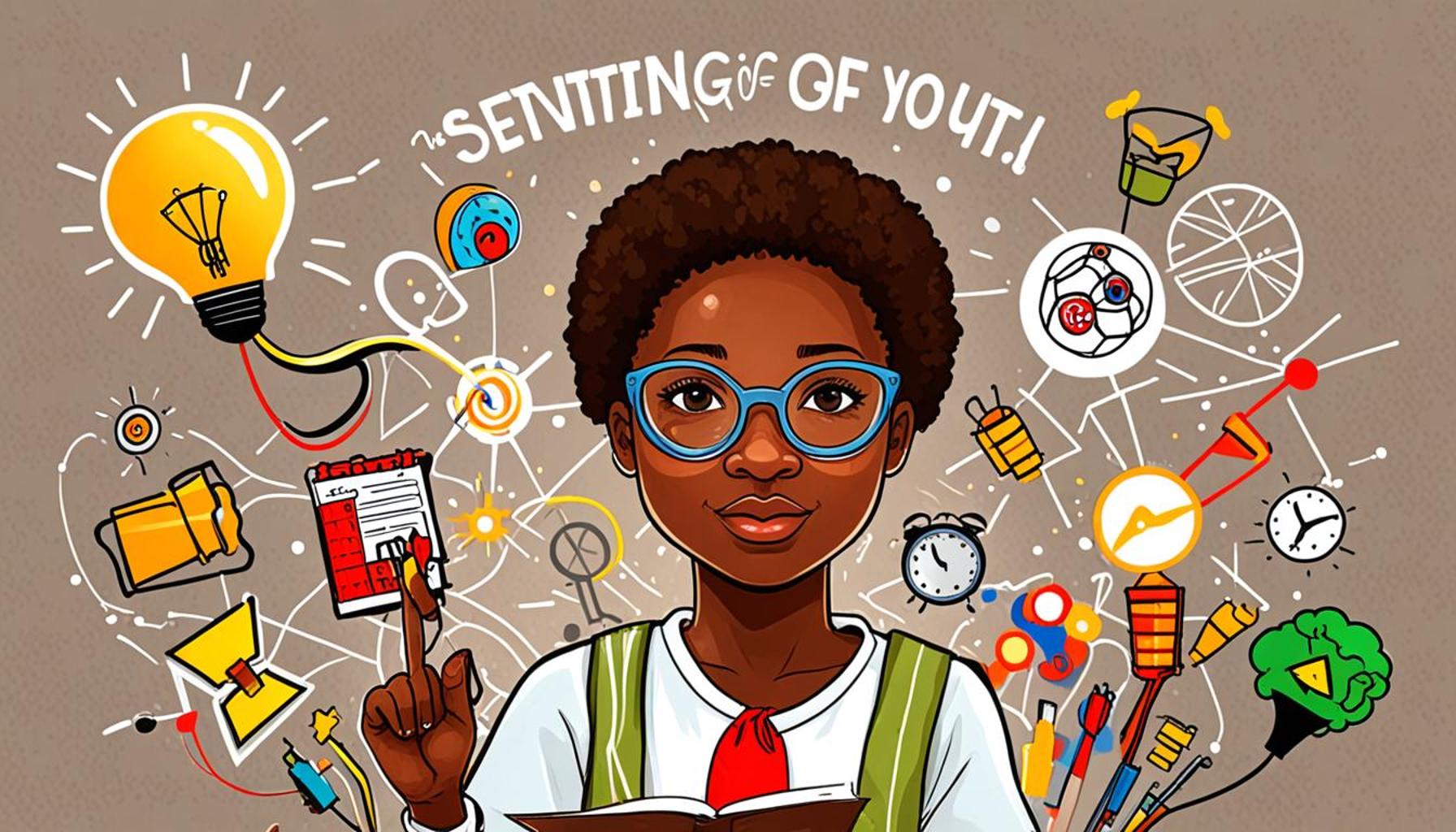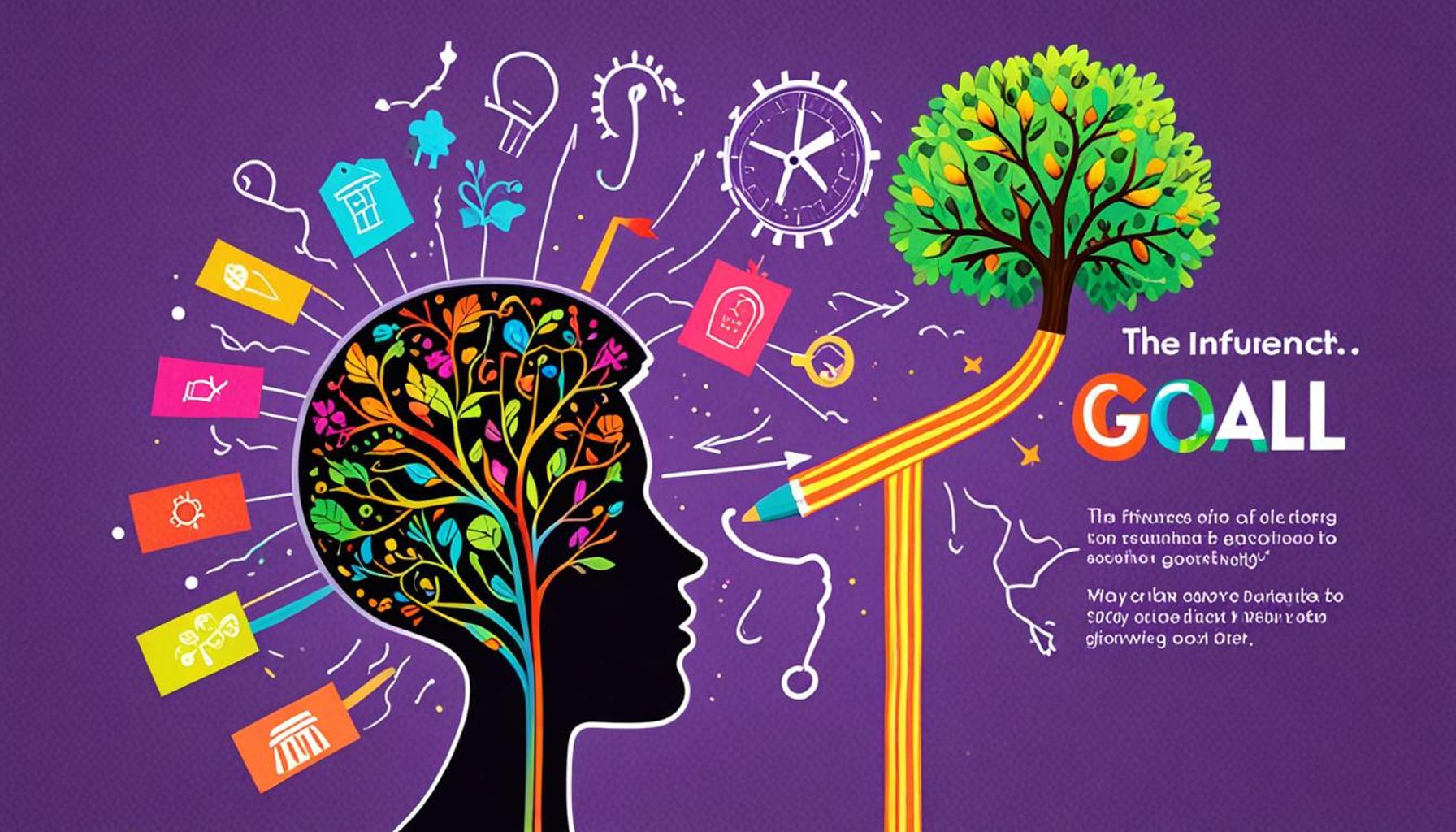How goal setting can help in adapting to cultural and social changes in diverse environments.

Understanding Cultural Shifts Through Goal Setting
In an increasingly interconnected global landscape, cultural and social changes unfold at a swift pace, shaping the lives of individuals and communities. For those in Nigeria, a country defined by its rich cultural heritage and diversity, these transformations can lead to both challenges and opportunities. However, with the right tools and strategies, individuals can harness these changes for personal development and community growth.
One of the most effective tools in this journey is goal setting. By articulating clear objectives, individuals can navigate the complexities of cultural evolution with greater ease. Here are several ways in which goal setting can prove vital:
- Clarity of Purpose: Setting specific goals allows individuals to define their priorities, helping them focus on what matters most amid the evolving social landscape. For example, a young entrepreneur in Lagos may set a goal to establish a local business that celebrates indigenous crafts, thereby contributing to the preservation of cultural identity.
- Adaptability: Established goals can encourage individuals to embrace flexibility, adjusting their actions as new social dynamics emerge. In Nigeria, where traditional values often intersect with modern influences, being adaptable can lead to innovative solutions and mainstream acceptance of unique ideas.
- Motivation: Clearly defined goals can serve as a source of inspiration, fostering a sense of resilience that is crucial when faced with change. For instance, a student setting academic goals in preparation for a competitive job market is more likely to stay motivated and persevere in the face of challenges.
In Nigeria, where numerous cultures converge, the importance of adaptability cannot be overstated. Individuals who are willing to set attainable, relevant goals not only navigate change but also deepen their appreciation for the rich tapestry of diverse backgrounds in their communities.
The exploration of goal setting reveals practical strategies that can empower individuals to thrive amidst change. Individuals can engage in community initiatives that aim for collective goals, fostering unity and resilience within diverse groups. Whether it involves establishing educational programs, community workshops, or social enterprises, these initiatives can help bridge gaps between varied cultural narratives.
As we further investigate the transformative power of goal setting, it is essential to recognize its role in enabling cultural adaptation. With a clear direction, the obstacles that come with change can become stepping stones toward a more inclusive and resilient society. Goal setting is not merely a personal endeavor; it is a collective journey that encourages communities to grow, learn, and thrive together in the face of rapid change.
ADDITIONAL INSIGHTS: Expand your understanding here
The Framework of Goal Setting in Navigating Diversity
In a nation as diverse as Nigeria, the interplay of various cultures can create a vibrant yet challenging environment. Understanding how to set goals effectively is crucial for individuals who seek to thrive amid these cultural and social changes. Goal setting acts as a framework that not only guides personal actions but also encourages collective progress within communities.
To appreciate how goal setting can facilitate adaptation, it is essential to examine its strategic components. Individuals can use the SMART criteria—specific, measurable, achievable, relevant, and time-bound—to structure their objectives. This structured approach lays the groundwork for clear and attainable goals that align with the evolving cultural landscape.
- Specific: Goals should be well-defined. For instance, instead of a vague ambition to “learn more about Yoruba culture,” a clearer goal could be “attend weekly cultural dance classes in Ibadan for the next three months.” This specificity fosters accountability and commitment.
- Measurable: Setting measurable goals allows for tracking progress. An individual might aim to participate in three community outreach programs focusing on cultural heritage by the end of the year. Measuring milestones can serve as a powerful motivator.
- Achievable: Realistic goals help mitigate frustrations. For example, while aspiring to promote traditional crafts globally is commendable, starting with local exhibitions may be a more attainable first step.
- Relevant: Goals should resonate with personal values and community needs. A local artisan may choose to develop a marketing strategy that emphasizes sustainable practices in the fashion industry, thereby aligning business goals with cultural promotion.
- Time-bound: Establishing a deadline is crucial for maintaining focus. Setting goals such as “increase participation in a dialogue forum by 25% within six months” creates a sense of urgency and purpose.
These elements of goal setting not only enhance the individual’s capacity to respond to changes but also strengthen communal ties. In Nigeria, where traditional and modern values often clash, measurable and relevant objectives can facilitate understanding and collaboration between different cultural groups. For instance, professionals from various backgrounds might participate in joint initiatives aimed at resolving community issues, thus fostering social cohesion.
Moreover, the process of goal setting encourages individuals to reflect on their cultural identities. This reflective practice promotes self-awareness and sensitivity towards others, paving the way for more meaningful interactions within diverse environments. One might think of a student aspiring to excel in a multicultural setting, using both academic and cultural goals to bridge gaps and embrace diversity more fully.
As we delve deeper into the principles of goal setting, it becomes evident that adapting to cultural and social changes in Nigeria is not merely an individual journey but a collective one. When people set goals that resonate with the community’s aspirations, they contribute to the vibrancy and resilience of the cultural landscape.
Understanding the Role of Goal Setting in Cultural Adaptation
When navigating cultural and social changes within diverse environments, the practice of goal setting emerges as a crucial strategy. By delineating specific, measurable, achievable, relevant, and time-bound (SMART) goals, individuals can better orient themselves amidst the complexities of new social dynamics. This approach not only provides direction but also empowers individuals to engage with different cultures more effectively. Research shows that clear objectives enable individuals to focus their efforts, thus enhancing their adaptability to varying customs and norms. For instance, when moving to a new country, setting a goal to learn the local language within a specific timeframe can significantly improve communication and social integration. Moreover, involving oneself in community activities or collaborations helps in understanding local perspectives while achieving personal goals. This dual benefit of personal growth and community engagement fosters a supportive network that can ease the transition process. By maintaining flexibility in their goals, individuals learn to adjust their strategies based on the feedback from their experiences, thus enhancing their ability to thrive in diverse settings. In essence, the thoughtful practice of goal setting not only facilitates personal development but also enriches the understanding of cultural dynamics, ultimately leading to more fulfilling interactions within diverse communities.
| Advantage | Description |
|---|---|
| Enhanced Communication | Setting language learning goals fosters better interaction with locals. |
| Increased Cultural Understanding | Goal setting encourages participation in cultural events and activities. |
By structuring their objectives around cultural immersion and adaptation, individuals can navigate the intricacies of social changes with confidence and resilience.
RECOMMENDED: Check out this similar article
Leveraging Goal Setting for Cultural Engagement and Social Empowerment
As Nigeria continues to evolve, the fabric of its society is frequently interwoven with contrasting cultural narratives and societal expectations. In this dynamic environment, goal setting emerges as not merely a personal tool but a catalyst for social empowerment and cultural engagement. By defining objectives rooted in community values, individuals can initiate profound interactions that transcend cultural boundaries.
One of the compelling advantages of effective goal setting is its potential to promote cross-cultural collaboration. For instance, consider the impact of local festivals that celebrate Nigeria’s rich tapestry of ethnic traditions. By setting a goal to participate in or volunteer for events such as Osun-Osogbo or Durbar, individuals not only immerse themselves in cultural experiences but also forge connections with fellow participants from diverse backgrounds. This engagement leads to a broader understanding of the myriad social dynamics at play and cultivates shared respect among different groups.
Cultural adaptability can also be reinforced through educational goals. In a multicultural nation like Nigeria, individuals can seek out workshops or training sessions aimed at enhancing cultural competence. For example, setting a goal to attend monthly seminars that address conflict resolution strategies between ethnic groups not only builds interpersonal skills but also fosters understanding among communities. This collective learning and adaptation are critical in navigating social changes effectively.
- Recognizing Diversity: Individuals can set goals that focus on acknowledging and celebrating differences rather than merely tolerating them. Developing objectives that aim at understanding the significance of cultural variances strengthens communal bonds.
- Promoting Inclusion: By setting measurable goals tied to inclusivity initiatives, such as campaigns for gender equality or disability rights, individuals contribute to a more equitable society. For example, a local community leader might aim to mobilize resources to create accessible spaces for persons with disabilities within public events, ensuring everyone’s participation.
- Encouraging Local Initiatives: Setting goals to support local artisans or farmers creates a reciprocal relationship between diverse groups, enhancing cultural appreciation. Collaborating on projects that emphasize the value of traditional crafts or food not only preserves these elements but also enriches the community’s identity.
The act of setting and pursuing such goals allows individuals to challenge existing stereotypes and prejudices. By engaging in activities that promote inclusivity and understanding, each person becomes a change agent, visibly demonstrating the importance of diversity. An individual’s involvement in community dialogues centered on cultural differences, such as roundtable discussions hosted by NGOs working on unity initiatives, exemplifies how goal setting can facilitate social coherence and intercultural understanding.
Moreover, goal setting fosters resilience in the face of change. In times when cultural clashes threaten social peace, individuals equipped with specific objectives are far better positioned to navigate these tensions. Knowledge sharing and collaborative problem-solving become essential tools for promoting harmony. For instance, a group might set a goal to facilitate monthly dialogues between rival youth groups in order to tackle misconceptions and resolve conflicts. This proactive approach not only diffuses potential tensions but also cultivates a culture of peace.
Thus, through goal setting, individuals can play pivotal roles in shaping a societal landscape that embraces diversity effectively. With each targeted initiative, we not only enhance personal growth but actively contribute to a society that thrives on cultural richness. The benefits of structured goal alignment resonate far beyond individual achievement, serving as a testament to the transformative power of community-oriented aspirations in navigating the intricate tapestry of Nigerian society.
LEARN MORE: This related article may interest you
Conclusion: Embracing Change Through Strategic Goal Setting
In a nation as culturally rich and diverse as Nigeria, goal setting proves to be not just a method for personal advancement but an essential strategy for adapting to social and cultural changes. By establishing clear objectives that resonate with the values and aspirations of various communities, individuals become active participants in the ongoing narrative of their society. This proactive approach serves not only to build personal capacity but also to strengthen communal ties, enhance intercultural understanding, and encourage dialogue across different cultural groups.
Moreover, as the social landscape continues to evolve, the emphasis on inclusivity and collaboration becomes crucial. Setting goals that focus on recognizing diversity, promoting equality, and supporting local initiatives allows individuals to address and embrace the complexities of cultural interactions. Importantly, this practice equips communities with the tools needed to navigate conflicts and foster peaceful coexistence amid contrasts.
Ultimately, the transformative potential of goal setting extends far beyond the individual’s journey. It empowers entire communities to coalesce around shared aspirations, nurturing an environment where everyone can thrive. For those seeking to delve deeper into how goal setting interlinks with social dynamics, engaging in local dialogue, community workshops, and cultural events can reveal untapped opportunities for cooperation and growth. By leveraging these insights and prioritizing collective goals, we pave the way for a more inclusive and harmonious future that honors Nigeria’s vibrant cultural mosaic.


